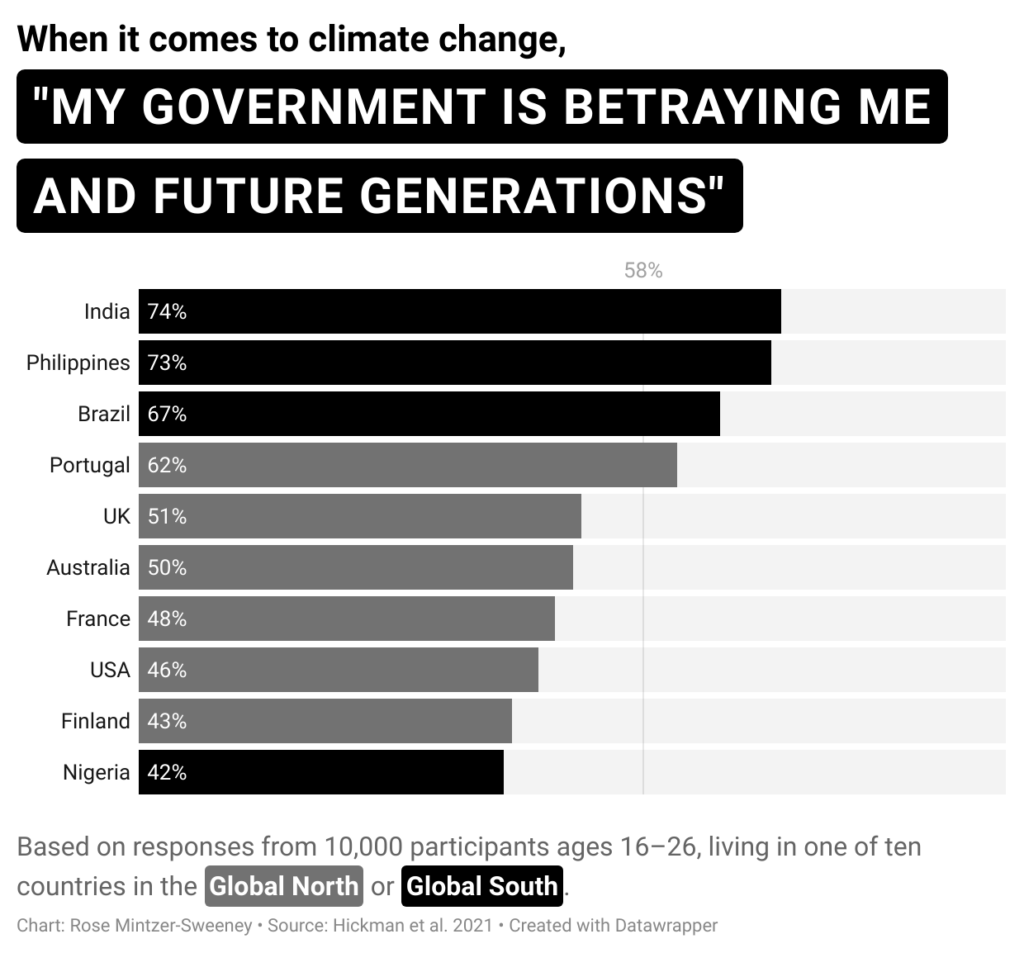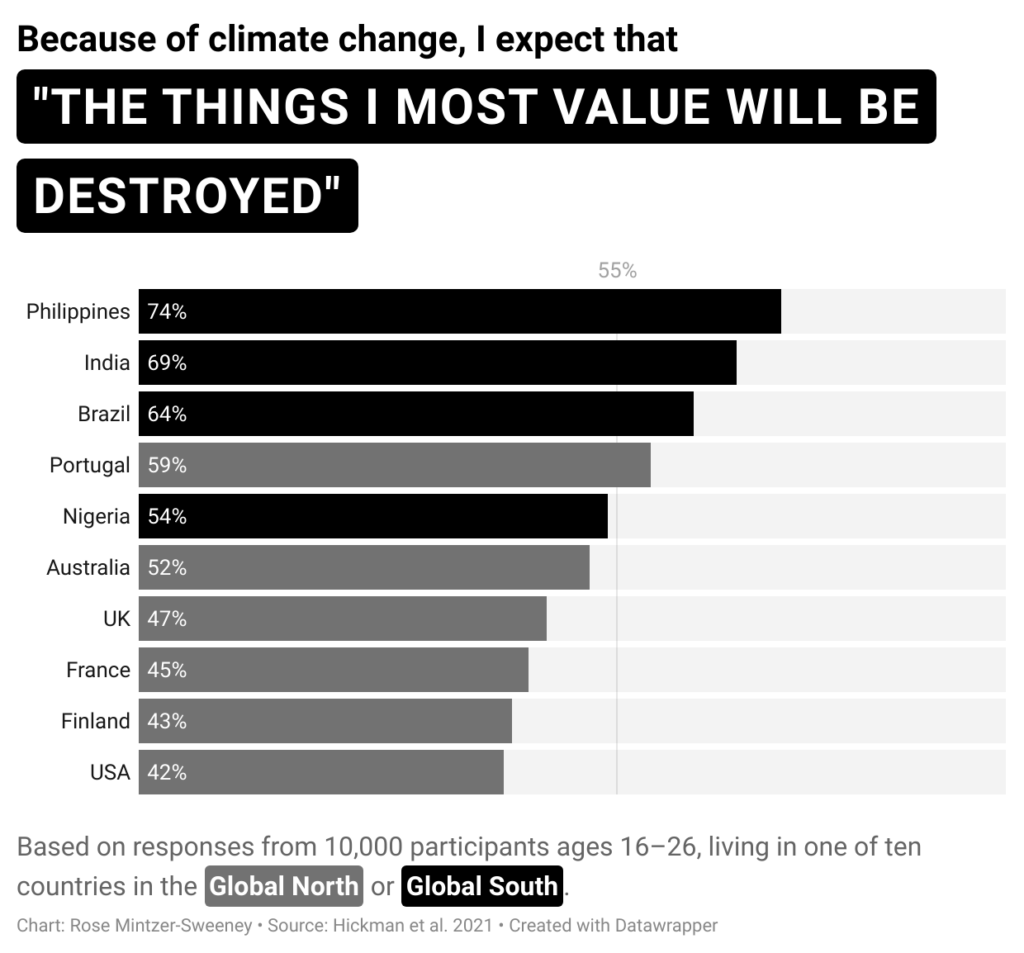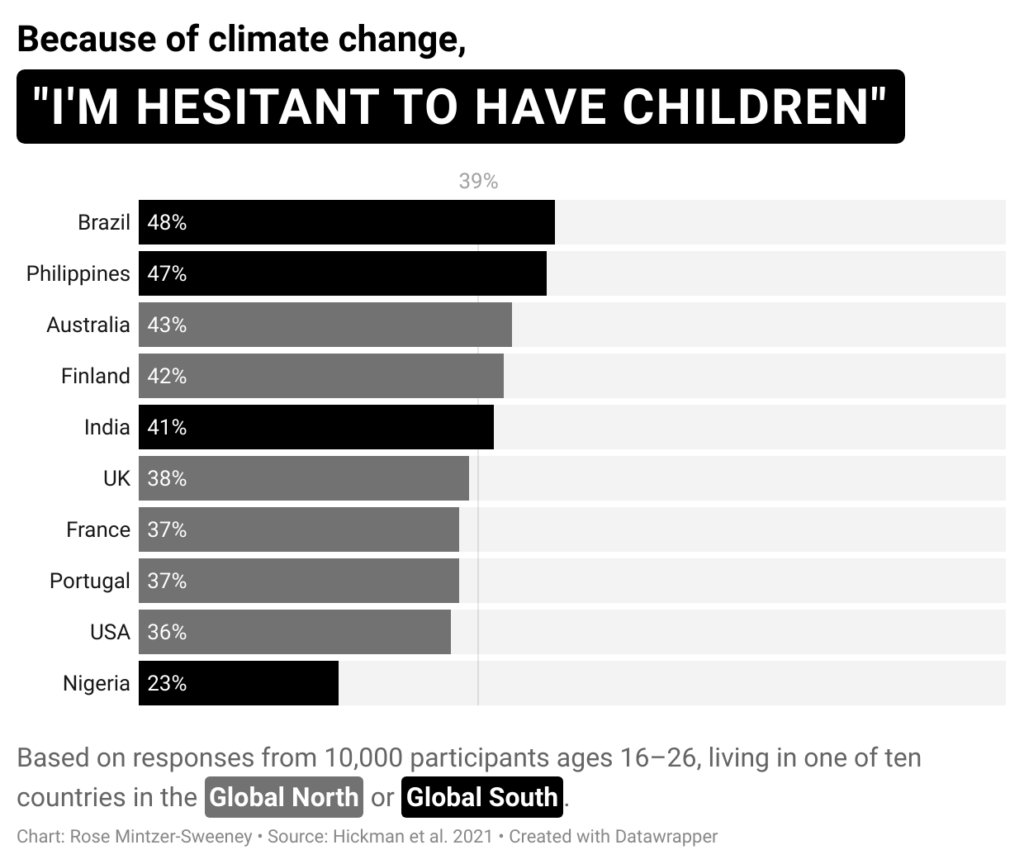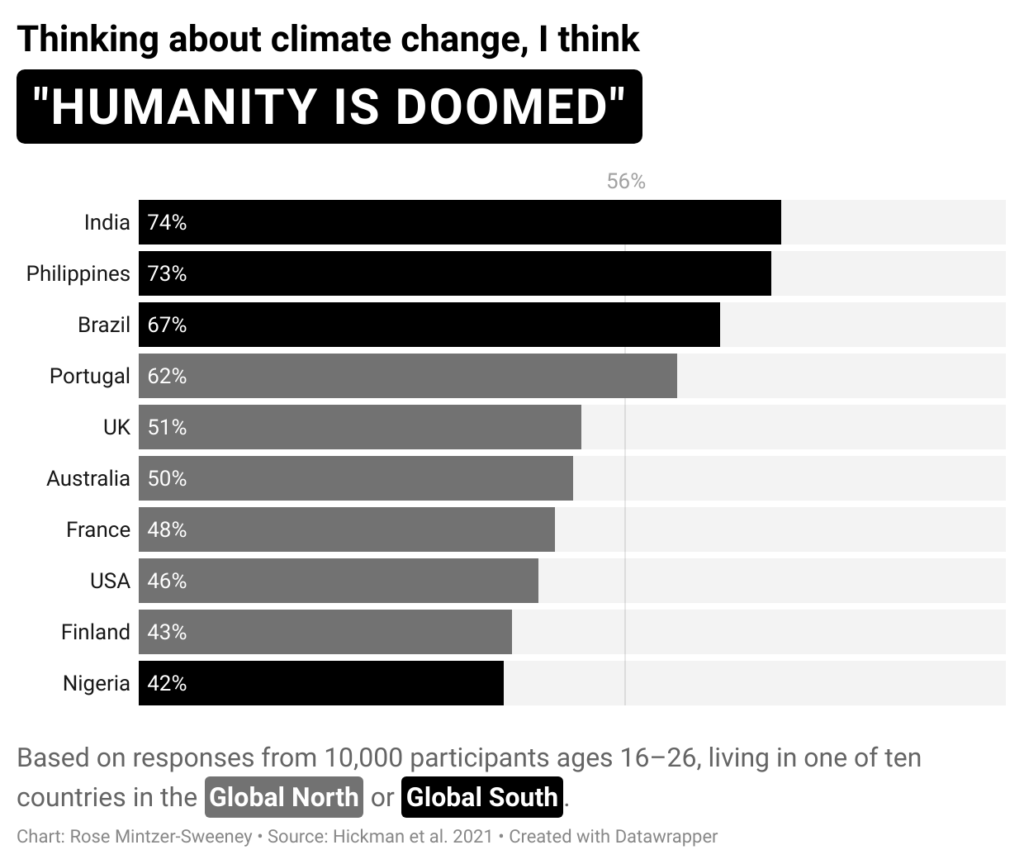This article is brought to you by Datawrapper, a data visualization tool for creating charts, maps, and tables. Learn more.
The climate crisis inside our heads
Hello, it’s Rose! I write for the blog at Datawrapper. These days, life feels like it’s going pretty great for me personally. But then I’ll remember Our Present Situation. Not that one — the other one. And it’s pretty hard to feel anything but crushed about that. Turns out a lot of people are feeling the same way…
When we write about climate change, the task usually seems clear: to make people feel, who didn’t before, just how dire the situation really is. It’s a crisis! A catastrophe! An apocalypse! The likeliest outcomes are very, very bad, and they will personally affect you.
A lot of people need to hear those messages. Probably most people! But at the same time, if you take them in — really take them in — things can start feeling pretty bleak. The causes for despair are obvious and the causes for hope seem slim. Especially among young people and people in the Global South — both of whom, on the whole, have less responsibility for causing the problem, less power to fix it, and more to lose from ignoring it — psychological distress over climate and ecological change can weigh heavily on daily life.
That human crisis has not been so well studied as the environmental one. So a new study, out in preprint this week, that surveyed 10,000 young people from ten different countries about their emotions and beliefs surrounding climate change and the government response to it, is a big step forward for understanding just how widespread the issue is. It’s received coverage all over the world — and no wonder, because the results are stark. Let’s start with the basics: just shy of 60% of participants are “extremely” or “very” worried about climate change.
But "worry" can be a pretty everyday emotion. What kinds of feelings are hiding beneath it? There's the anger of 58% of participants who feel that their government is betraying them. There's the grief of 55% who expect the things they value most in life to be destroyed. There's the fear of 39% who say they're hesitant to have children. And there's the despair of 56% who believe humanity is doomed.
The authors of the study emphasize that "climate anxiety is rational and does not imply mental illness." Instead, they frame the suffering captured here as a human-rights issue caused by the destructive and neglectful behavior of governments worldwide. And these aren't just distressing responses provoked by distressing questions: 45% of participants said that feelings about climate change were already negatively affecting their daily lives. Feelings like:
Ignoring the climate is what got us all here in the first place, so we can't solve this new crisis by doing more of the same. The first step is simply to recognize the effects of grief and fear even as we continue to raise the general alarm. And in fact, the two goals don't have to be in conflict. "Climate anxiety in children and young people should not be seen as simply caused by ecological disaster," the authors write. "It is also caused by more powerful ‘others’ (adults and governments) failing to act on the threats being faced." In other words, political inaction is its own root cause of climate grief — and political action is the cure.
That's all for this week. See you next Thursday for a Weekly Chart from Lisa.








Comments